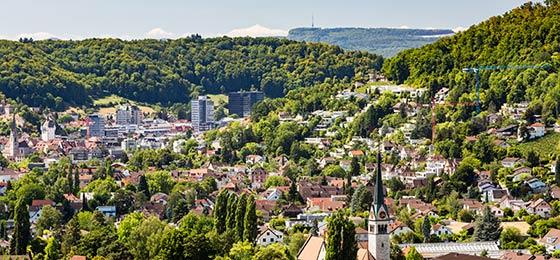“Urban sprawl” project completed

The increasing loss of land is expected to continue until the middle of this century, though the trend is expected to slow.
The “urban sprawl” project, led by Felix Kienast of the Swiss Federal Institute for Forest, Snow and Landscape Research (WSL), ascribes urban sprawl partly to the failure of market mechanisms and difficulties with calculating external impacts. Too little attention is focused on the positive effects of intact belts of land and their benefits in terms of ecosystems; nor are the social costs taken fully into account.
A forecasting model suggests that the total built-up area in Switzerland will grow by between 3 and 56 percent. If no countermeasures are taken, this could reduce the amount of land available to agriculture by 13–15 percent. The best-quality farmland is particularly at risk.
In addition to political and tax incentives, it is proposed that more planning capacity be made available in the communes, with improved coordination of the planning processes in the regional planning bodies. The compensation of the added value (Mehrwertabschöpfung) will make it possible to define some key priorities for settlement planning both within the communes and at a regional level. Moreover, regional financial compensation mechanisms are to be investigated. To compensate for the loss of valuable agricultural land, structure plans (Richtplan) should take due account of the functions and quality of the land.
- Projet Urban sprawl
- Executive Stakeholder Summary (available in German or French only) (PDF)
- Project page of WSL
